PRCA Rodeo, history and what it does
LISTEN to the INTERVIEW: PRCA interview with Sherry, What is it about?
Karen Riedl: Good afternoon! This is Karen from County Fairgrounds out of Denver. We’re going to talk today to Sherry Compton of the PRCA rodeo, Pro Rodeo. Hi, Sherry!
Sherry Compton: Hi! How are you, Karen?
Karen: Oh, I’m fine. I have a question because I didn’t recently really know too much about rodeo. I’ve often had a curiosity as to exactly what some of these rodeo associations do. So can you tell me a little bit about the history of the PRCA first?
Sherry: Sure. Absolutely. The PRCA is the largest, oldest sanctioning body of professional rodeo. We’ve been around for a long, long time. I think in our infancy, a lot of roping and riding contests happened at the end of trailheads and trail drives. A lot of ranch outfits got together and had contests. They would have their best hands compete. So it was loosely organized for a long time, but they became anticipated events. In 1936, that was our first organizational effort when contestants rebelled against some promoters and demanded their fair prize money, consistency in judging, and honest advertising. So this group banded together. I think there were probably 61 of them. They started the Cowboy Turtle Association. They called it the Cowboy Turtle Association because they stuck their necks out, and they were so slow to organize.
Karen: That’s funny! The Cowboy Turtle Association.
Sherry: That was their original name because they stuck their necks out and they were so slow to organize, which is something they felt they should have done earlier. But from 1936 that was their name. In 1945 they changed the name to the Rodeo Cowboys Association. They had a permanent home in Colorado Springs. We moved down here in 1979, but in 1975 the Rodeo Cowboys Association became the Professional Rodeo Cowboys Association. So we’ve had a long history. We keep stats of all of our world champions and files on all these cowboys throughout the year, so we’ve got a lot of information here housed.
Karen: I know that there’s a lot of rodeo associations. How do you fit in with all these rodeo associations, because there’s a lot of them around?
Sherry: They’re all over I think within every state, just like there’s the Colorado Pro Rodeo Association. But we’re not affiliated with any other of those. We do work in cooperation with The Canadian Professional Rodeo Association. We are a proud sponsor of The National High School, The Intercollegiate Rodeo Association, Little Britches, American Junior Rodeo. So we do sponsor those organizations there and work with them a little bit. But basically, we have no contact with any of those other associations. We consider those minor league. They’re professional to a degree because they earn money. They win money but we consider them minor league, and we really don’t have any affiliation. We sanction over 600 rodeos a year throughout the United States and Canada.
Karen: OK. All right. So you’re telling me that the PRCA Rodeo Association is the rodeo association for the United States then. Is that what you’re telling me?
Sherry: Well, we’re the largest and the oldest. That’s all I can say. I just think most of the cowboys just like the big names. Ty Murray made his name here. Our prize money is I think over $40 million for the year. In 2008 we had over $40 million. We have our year-end finals, The National Finals Rodeo, in Las Vegas. It’s called The Wrangler National Finals Rodeo, and we offered $5.625 million in prize money. So I think a lot of associations, the way I look at it, are stepping stones to the PRCA. But some cowboys don’t choose to rodeo full time, either. So it depends on the person and what they’re looking for.
Karen: OK. Well, the next question I’m going to ask you is where does the money given for these prizes come from, and then do you own these rodeos?
Sherry: …going on right now. We’ve got rodeos going on all the time. Usually a committee or something from a particular town, like a local Jaycees or businessmen, contacts the PRCA. They have to meet certain criteria to be sanctioned by us. They have to put up added money, which all the contestants’ cowboy fees goes into that, too, when they enter the rodeo. But they do have to meet certain criteria to be called a PRCA rodeo, a Professional Rodeo Cowboys Association rodeo.
Karen: So what do you do for the average guy who wants to ride in a rodeo?
Sherry: Well, for the average guy, the dues. You come into the association by purchasing a permit. It’s $300. After you’ve won $1,000 on that permit, you’re eligible for full membership. The fee is for full membership for $500. That covers you with insurance for in-arena accidents and that type of thing. I think just the PRCA offers so much support in so many different ways, from top bucking stock and the national headquarters. We’re fully staffed. We’re always there to help our contestants. We’ve got essential entry systems set up, where all they have to do is dial one number. They can enter multiple rodeos, call back, and find out when they’ve drawn up. It’s all computerized. But there’s just a lot of nice services just becoming member of the PRCA. We’ve always been trying and worked hard to raise the standards of rodeos across the country.
Karen: Being the average person who goes to a rodeo, I always thought the PRCA was a mystical kind of a thing. But I didn’t know where it came from or what it really meant.
Sherry: The PRCA? You didn’t know what it meant?
Karen: No, and I’m a kind of sit-around person, OK? And I know that I should have, but I deal with a lot of stuff. I just really started to develop a real good interest in rodeos and what goes on at rodeos. I think a lot of times that the average person out on the street is a little confused by that.
Sherry: Absolutely. And another thing. I just think that being a part of the PRCA with our pro officials program, they’re more insured of consistency in judging. We’ve got the top caliber judges at sanctioned PRCA rodeos, like I said, besides top stock and all of our stock contractor members. So there’s a lot of plusses at being part of the PRCA.
Karen: Stock contractors are a thing I learned about recently. I know that there’s a lot of them around. What does it take to be a good stock contractor? Do you approve certain stock contractors and suggest certain stock contractors to a rodeo?
Sherry: Again, they have to be checked out and certified. Make sure that they have so much livestock, and a lot of these stock contractors have had their own breeding programs. A lot of people just think you can make a horse buck, but not consistently. A lot of these horses will not make saddle horses, and they do enjoy bucking. So just having a lot of good livestock. The stock contractors make their own contracts with different rodeo committees throughout the country. At The Wrangler National Finals Rodeo in Las Vegas we have a PRCA convention, where a lot of our contract members from rodeo clowns, acts, and stock contractors come together and meet with the rodeo committees throughout the country. Then they sign contracts for the year. So they take care of their own business. But again, I say that they have to be checked out and that they’ve got the caliber of stock to meet the PRCA standard. We’ve got a lot of good contractors throughout the country that take good care of their livestock. They’re expensive, and they really do care about them. They’re a huge part of a cowboy’s score. They take good care of those animals.
Karen: Right, and I’m aware that a lot of the stock contractors do different rodeo things and move stock around. So do the stock contractors pay a process fee to join the PRCA?
Sherry: Yeah, they have a membership fee, and they have to have so many head of livestock. I don’t really work in that area, but there is a process for them too.
Karen: You said clowns. Do you have a membership for rodeo clowns?
Sherry: Well we have contract personnel and that includes that they have to be members. Anybody that works a Professional Rodeo Cowboys Association rodeo has to be a member. Our contract personnel really consists of announcers, clowns and barrelmen, bullfighters, rodeo secretaries, specialty acts, stock contractors, timers, and rodeo producers. They’re all considered part of our contract personnel, and they have to be members to work our rodeos.
Karen: There are rodeo cowboys that are pretty famous. Do you guys offer training for these cowboys? Or do they learn all this stuff out in the field by themselves?
Sherry: Well the last few years, rodeo schools have really become popular. I would say a lot of cowboy contestants come up through the ranks from junior rodeo in high school and into college, and then onto the pros. And most of those kids that have grown up competing will go to rodeo schools. They’ve got rodeo schools for the roping and for the timed events. They’ve got rodeo schools for the roughstock events. So a lot of people go in there and just refine their skills. And since there are not as many ranches and youngsters growing up in agricultural areas, I think a lot of these cowboys are off the street from cities. They’ve done well by attending rodeo schools, and they actually do well in the PRCA, if that’s their dream and that’s what they want to do. So people come from all different walks of life it seems. But definitely, there are rodeo schools and most of these contestants have gone to one and honed their skills.
Karen: You’re primarily talking about men, right? I mean you’re not talking about women.
Sherry: Well there are barrel racing schools. Women do the same thing. Women have their own association, and they belong to the Women’s Professional Rodeo Association. They keep all their stats. They also have all-girl rodeos that compete in a lot of different events, not just barrel racing. But there are barrel racing schools; it seems like there are schools for just about every event.
Karen: I know that you said you sponsor the Little Britches rodeo. I know the Little Britches is pretty popular across the United States. How did that come about?
Sherry: I don’t know. That’s been happening long before I was here, and I’ve been around here for 30 years. But I think that’s where our future lies. All these kids that compete, when they’re youngsters, usually want to step up to the ranks of the professional rodeo. There’s been that union for a long time, and like I said, that’s where our future comes from – all those kids that are junior rodeoing right now. So a lot of those kids will come on into the PRCA.
Karen: All right now, cowboys. Some of these cowboys actually make a living at this? What is their shelf life? And about how much do they make?
Sherry: Well, I can tell you that being a cowboy is a young man’s sport, especially in the roughstock events. You’re talking about saddle bronc riding and bareback riding, and bull riding. So there are a lot of 20-year-olds and early 30s competing in that. A lot of our cowboys, I think, are world champions, if I can find it here. I’ll tell you, in the bareback riding, one cowboy won $216,967 in 2008. So they’re all winning over $100,000 or around $200,000. But a lot of our cowboys and contestants are “weekend warriors.” A lot of people hold down full-time jobs and then rodeo on the weekends. And we’ve got our circuit system made up for those people, so they can rodeo close to home. Some of our cowboys are full-time rodeo contestants that just crisscross the United States and enter rodeos. But for these other people that hold down full-time jobs, we’ve got a circuit system. And they can go to rodeos in their area and get points, and qualify for the national circuit finals, the Dodge National Circuit Finals in Pocatello. So they can win championships there too, even though they don’t rodeo full-time. So we have things set up for the full-time cowboy and for the part-time cowboy.
Karen: Doesn’t the PRCA do a seniors rodeo too? Sherry: No, we don’t. But there is a senior pro-rodeo association and that’s for age 40 and over, and they are located in Montana. So there’s a separate organization. But I was just saying that a lot of the roughstock contestants are younger. They’re in their 20s and early 30s. But a lot of our timed-event cowboys – when you’re talking about team ropers and some of the steer wrestlers – can rodeo a few years longer. We see a lot of team ropers out there in their 40s.
Karen: One time I went to a fair and rode the mechanical bull, and I know that you can get hurt. So a lot of people get hurt in rodeo, right? Sherry: Yeah, that’s just kind of what rodeo is. A lot of those contestants compete with injuries. They’re certainly not pampered athletes. We also have Justin as a major sponsor of the PRCA, and they have the Justin Healer Program. And they go to probably 60 of our major rodeos out there, and have the Justin’s sports medicine team out there available to contestants with injuries.
Karen: OK. For the average rodeo person who does get hurt – and if they can’t ride again and they can’t get involved – does the insurance pretty much take care of their injuries then for the rest of their life?
Sherry: No, not at all. We have a Justin Cowboy Crisis Fund, which people donate to. If a cowboy is injured in the arena, the Justin Cowboy Crisis Fund will help out with some of their expenses, and help them for as long as they can, depending on the injury. But it’s a pretty individual sport. You come in here and you pay your own fees. You pay all your own expenses. I always say that rodeo is not just a sport – it’s more of a lifestyle. I think cowboys have always been seen as the independent romantics. Some of that, I’m sure, is what drives some of these young people to the sport.
Karen: Right. I’m sure that it does. So you’ve been drawn to the sport. What’s drawn you to it?
Sherry: What’s drawn me to it? I don’t know. When I was a little girl, I started competing in Little Britches and had horses and everything, and just loved it. I competed in high school. In college, I got involved with reining horses. But my husband competed while he was growing up. Our kids competed in Little Britches in high school. So we’ve been involved in the sport most of our lives. And you’ve just got to love it. You love horses. You love the competition. I had friends that said: “You sure you want your kids to rodeo?” And I said we have to keep it all in the right perspective. It’s a wonderful family activity. We’ve got an arena at home, and everybody’s battled at night. After school, everybody heads out to the arena. We were doing this activity together, and I just thought it was wonderful. We went to competitions together, and it was a really good family time, instead of everybody going in separate directions. Competition is what keeps them interested.
Karen: I was at the Rocky Mountain Horse Expo on Sunday, and they had little, pony stick riders for the little kids. And that was really interesting. I mean, and they really took it seriously, these kids. The little kids.
Sherry: I know they have roping contest for these little kids, that their not on horseback, but they have roping contests and jackpots, so the little kids can take part too. And what else has gotten popular — the PRCA doesn’t sanction it, it’s not part of the PRCA — but at some of those rodeos they’ll hold little mutton busting contests where these little kids get on a sheep, and they have little vests, and helmets, and it’s just as cute as can be. So, there’s a lot of fun for the little ones too. I think the National Britches Rodeo Association, I think you have to be age 8. I think it’s ages eight to 18 to be able to compete there. But I know a lot of those kids are also competing in high school rodeos too.
Karen: The PRCA has a museum in Colorado Springs. What’s in the museum?
Sherry: Oh, golly. My husband actually put that museum together. He was the operations manager and did all the collections. It opened in 1979, The Pro Rodeo Hall of Fame. And we just housed most of the greatest cowboys in our history in there, they’ve all got displays and a lot of their personal belongings are in there, from their chaps and boots and hats. It’s just a nice place to visit and if you’ve had an interest in rodeo and know who some of these people are, it’s just wonderful to go down through history lane and look at all this. There’s beautiful bronzes. And they’re doing a new exhibit right now, I think Las Vegas is putting this together downstairs, so there’s a lot of nice things to see when you go in there. even if you don’t follow rodeo it’s kind of interesting to look at all the sculptures and just to read who some of these people are. We’ve got some of the all-time great livestock that’s been inducted, so it’s just a nice place to visit for all these people that made history.
Karen: Does the PRCA provide a place like — I know you said the cowboys, they sign up and they pay a membership fee and everything so do they have any interaction with each other within the organization?
Sherry: What do you mean by that?
Karen: Do they have a place where they can go where they congregate, and they all intermingle, and socialize and things like that. Do you provide something like that for the cowboys? Sherry: Yes. When we have our conventions and when we have our inductions here at the Pro Rodeo Hall of Fame, that’s in July. But out there on the rodeo trail there’s a lot of these established rodeos like Salinas and Denver and Houston and cowboys crisscross the United States a lot of them run into each other there. They’ve got hospitality suites. Some of these rodeo committees and these different communities go all out for the contestants, and have nice places for them to eat, and just like hospitality kind of stuff. They come to their rodeo. You know, we’ve got rodeos that last from one day to two weeks so on that spectrum there’s all kind of different things and different rodeos that offer different things and I think it’s really nice for the cowboys. They do crisscross and run into each other out there, as they’re rodeoing. And of course when we have our convention and different things here at the Hall of Fame a lot of people come through. And they come through during the summer when they’re at Cheyenne and headed to the Pikes Peak or Bust rodeo here.
Karen: How do they get to be part of the Pro Rodeo Hall of Fame? How do they get inducted into that?
Sherry: Well, they’re nominated. I don’t work in that area either but I think that someone nominates somebody, that nomination form goes in there, and I believe that there’s three years where these people are considered. They have a panel of people that decide. They go through all the criteria and people that they think are deserving — we have rodeo notables and we have world champions and they make the decision. In fact, I think this next week this panel’s coming in right now to make the decision for the 2009 inductees this summer that will happen in July. And that’s really a nice event here at the hall.
Karen: You have world champions. Where else is rodeo big besides in the United States?
Sherry: Where else is it big? I believe in Australia. Of course, Canada. Canada’s big. They have a Canadian Professional Rodeo Association. I believe in Australia they have the Australian Roughriders Association. A lot of their young men have come over here to compete. But I know that a lot of Australians that have competed over in their country make arrangements to come over here and join the PRCA and compete in the States.
Karen: I imagine that you’d keep continuing and getting bigger. Where do you see the PRCA going? Sherry: Well, we’re always trying to get more prize money for our cowboys. We’ve got a lot of major corporate sponsors putting money into the association. We were just talking about it this morning, that with these hard times it seems like rodeo prospers because people aren’t taking extravagant trips and headed out of town. A lot of them might stay close and buy a $15 or $20 ticket to a rodeo. So people are always looking for activities and things. It is a family sport. Everybody can go and enjoy it, so I think we’re going to do pretty well. I hope we do. I hope the economy turns around for everybody, but rodeo is still here. We’re still going to have a lot of rodeos this year.
Karen: Right. I noticed when I was at the Rocky Mountain Horse Expo that there were a lot of horse people there and a lot of people going to the events. It was really…
Sherry: Oh, yeah.
Karen: It’s kind of fun.
Sherry: Right.
Karen: It’s kind of fun, and you sit back there. It’s better, I think, than watching a baseball game.
Sherry: Absolutely. I just grew up loving horses and competition, and there’s just something about it that attracts people and draws people. All horse events. People really love their horses, don’t they?
Karen: Yes. Yes. And I have a lot of interaction now with a lot of horse people online, and especially on Twitter, that have come looking for me. We’re having a lot of interaction. I’m finding more and more horse people that are absolutely horse crazy all the time.
Sherry: I know. It’s an expensive proposition, but one that people love.
Karen: Right, and people do seem to be entertained by it. In a lot of cases, like I said, it’s more rewarding than going to a baseball game and more rewarding than going to see a movie. People in the stands were just totally relaxed, and you could see that they were really enjoying themselves.
Sherry: Absolutely, yeah. Totally just fun.
Karen: All right. Well, do you have anything that you want to add? I think we’ve covered what the PRCA is and pretty much what it does.
Sherry: Well, I just hope that people will attend some rodeos and just appreciate the athletes that we have in the livestock and the athletes that we have in the cowboys. It’s certainly an American sport that originated from original ranch work and dealing with animals. I just have to say that most contestants and rodeo kids growing up love these animals, and we care for them and appreciate what they give us.
Karen: Right. I’ve seen the exciting things that go with it, like the rodeo clown. I think the rodeo clowns are real special people, too.
Sherry: Right. Absolutely. Absolutely. You can see it going to…
Karen: They really add to the rodeo.
Sherry: Yes, they do. They sure do.
Karen: OK. Well, thank you very much. I enjoyed talking to you in the PRCA Radio this afternoon. Thanks.

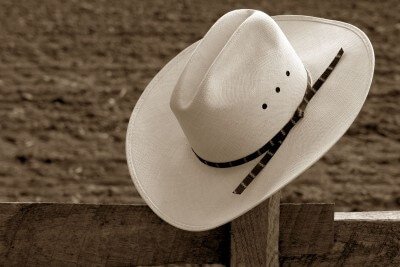


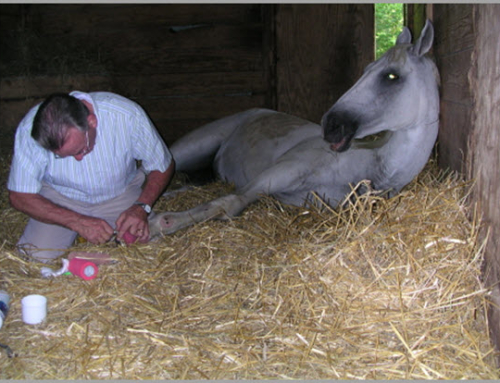
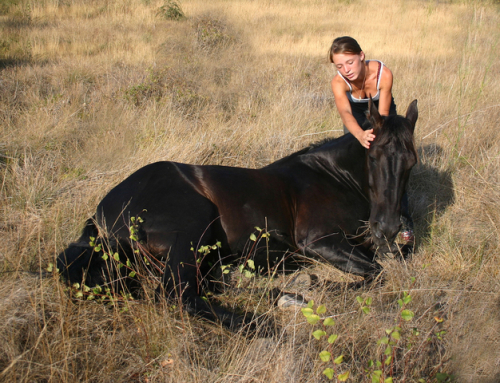
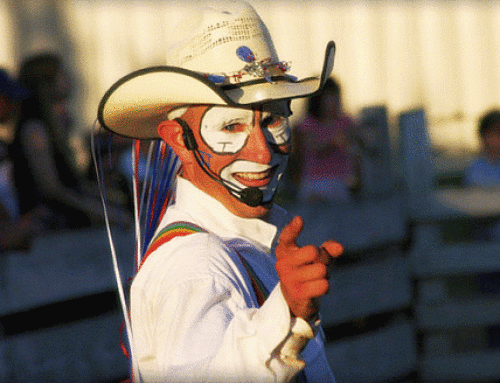
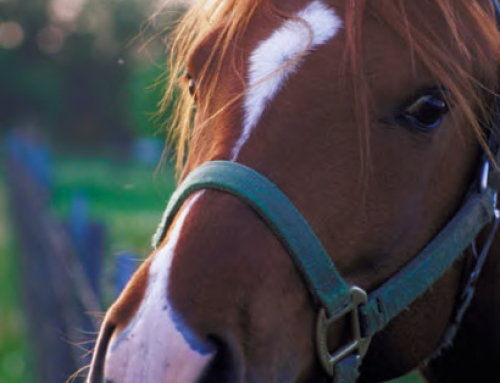
Leave A Comment